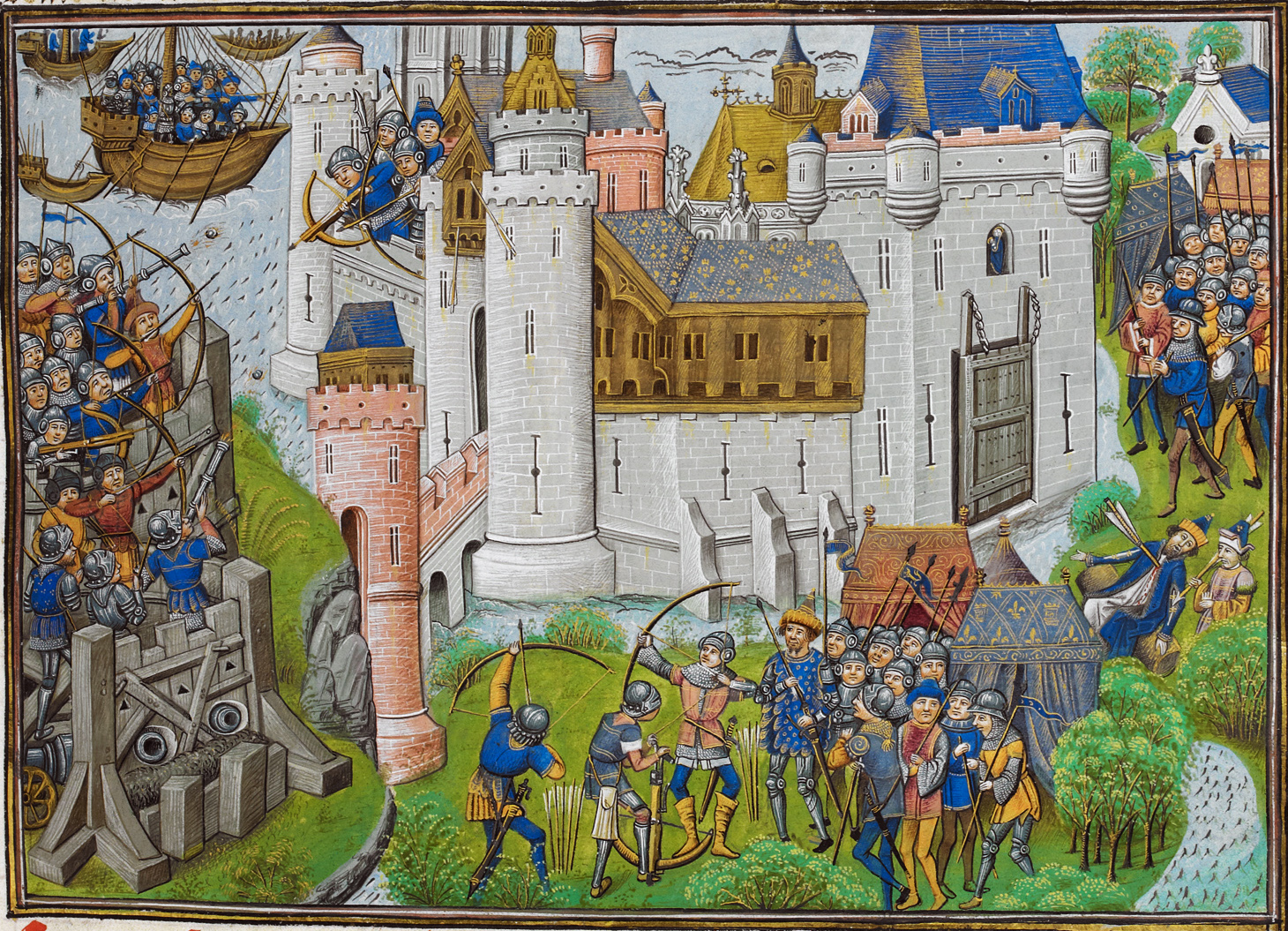Your basket is currently empty!

Owain Lawgoch: The Lesser-Known Rebel
I do sometimes wonder just how aware the later rebel/freedom fighter, Owain Glyndŵr, was of his earlier namesake, Owain Lawgoch.
They were near-contemporaries (Glyndŵr was already in his mid-20s when Lawgoch was killed in France); they share a first name; were both notorious Welsh rebels and both just so happened to be claimants of the title “Tywsog Cymru” (“Prince of Wales”).
Owain Lawgoch, whose real name was Owain ap Thomas ap Rhodri (Lawgoch translates to “red-handed”), was a Welsh soldier who fought for the French whilst leading a free company (a mercenary army), against the English in the Hundred Years’ War (1337–1453).
At first glance, one might be surprised to see Lawgoch was born in Surrey, of all places, but a little bit of investigation reveals why he identified so strongly with his Welsh heritage.
Aberffraw Heritage
It was in the year 1283 when free Cymru would fall to the Conquest of Wales by Edward Longshanks. Llywelyn (the Last) and Dafydd ap Gruffydd both perished and so ended independent Welsh rule.
What some often forget is that there was another brother of Dafydd and Llywelyn; Rhodri. This brother surrendered to Longshanks in exchange for a peaceful existence at a Surrey manor. Owain Lawgoch was the grandson of this very Welsh noble. This made him a senior (and the most senior) descendant of Llywelyn Fawr of House Aberffraw – giving Lawgoch a strong claim on the titles “Prince of Gwynedd” and “Prince of Wales”.
It was in Paris in May of 1372 when Owain would announce his intention of claiming the throne of Cymru and, with the financial support of French King Charles V (21 January 1338 – 16 September 1380), he set out to reclaim his family’s traditional Kingdom. He would prove to be a formidable thorn in the side of the English, who began to fear the potential ramifications of his claim.
Assassinated by John Lamb of Scotland
The English King, Edward III, feared the prospect of Lawgoch making an expedition which succeeded in landing on Welsh soil. So much was this fear, in fact, that the English establishment sought the aid of an assassin, John Lamb of Scotland, to take down Owain. He succeeded in killing Lawgoch in July of1378 and was rewarded a large sum of £20.
Lawgoch is today buried at the Church of St.Leger, near Cognac, France. A memorial at Lawgoch’s death location was unveiled Mortagne-sur-Gironde in 2003.
More from Welsh Histories
Welsh Histories is a Welsh history celebrating platform which looks to promote all aspects of Welsh history. Though we focus predominantly on native Welsh history, we do also share the non-native aspects from time to time. You can follow us on Facebook; Instagram or Twitter for more. A reader? We also have our very own Welsh Histories Shop where we sell our Welsh Histories Magazine. Diolch yn fawr iawn and keep enjoying Welsh Histories.
Niklas is the founder, owner, manager, editor, writer, video creator, voice over artist, and so forth, of Welsh Histories. He is passionate about the preservation of Welsh culture; the rejuvenation of the Welsh language and the promotion of Welsh history. Niklas currently resides in Pune, Maharashtra, with his beloved wife.

